Table of Contents
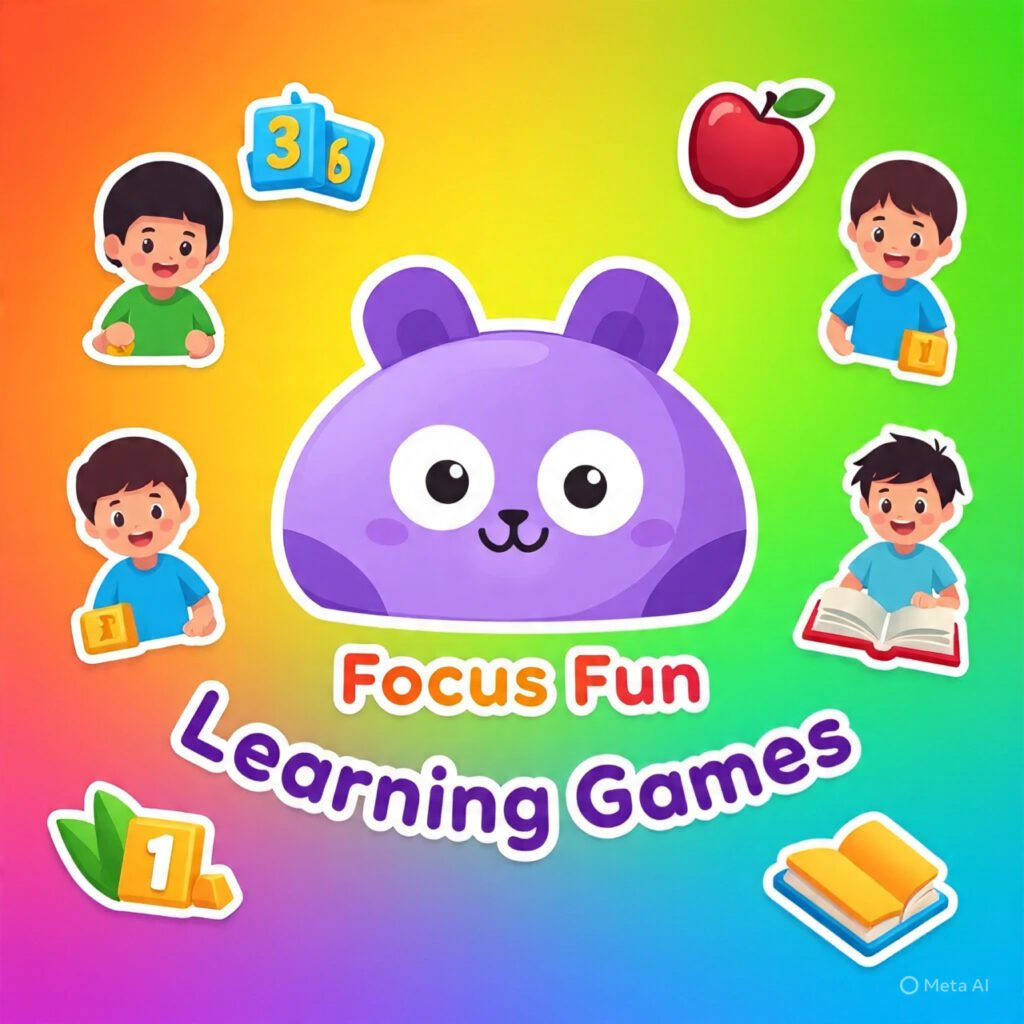
Why Kid Games Online Matter in Early Learning
Let’s face it: screen time is part of our kids’ lives now. But not all screen time is created equal. When we offer kid games online that teach, we flip the script—from passive watching to active learning.
Kid games online—especially ones like “Flip the Picture”—give young learners a playful path to real growth with fun. Whether you’re a parent of a curious 6-year-old or a teacher looking for engaging activities for Grade 1, these games can do wonders.
They don’t just keep kids busy—they build memory, attention, and even social-emotional skills when played together.
Understanding ‘Flip the Picture’ Game
“Flip the Picture” is one of the most popular kid games for kids—and for good reason. It’s deceptively simple: kids flip cards to find matching pairs. But beneath that simplicity lies a powerful brain workout.
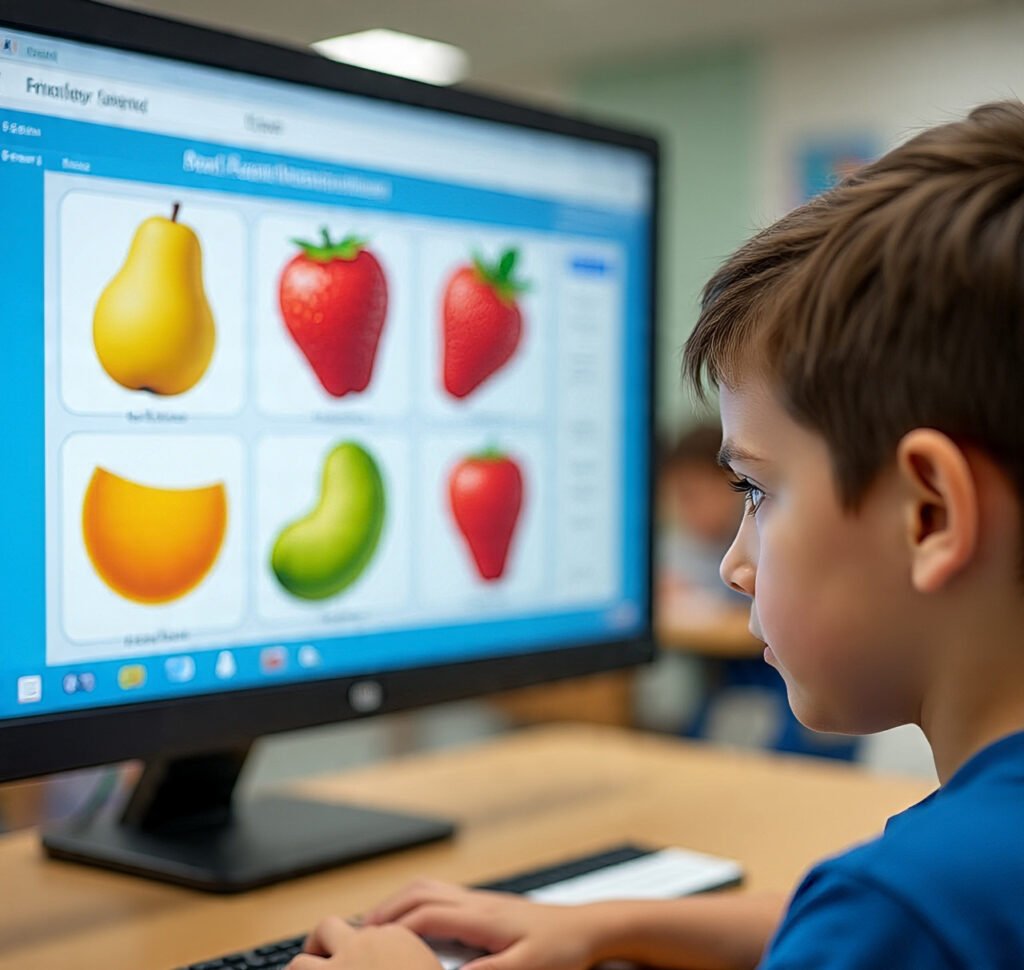
The rules are easy:
- You start with a grid of facedown cards.
- Click or tap to reveal two cards.
- If they match, they stay face up.
- If not, they flip back, and you try again.
Kid games online help build not only visual memory but also improve concentration, patience, and spatial awareness—all essential for early learning success
Ideal for ages 5–7, this game grows with your child. The more they play, the sharper they get.
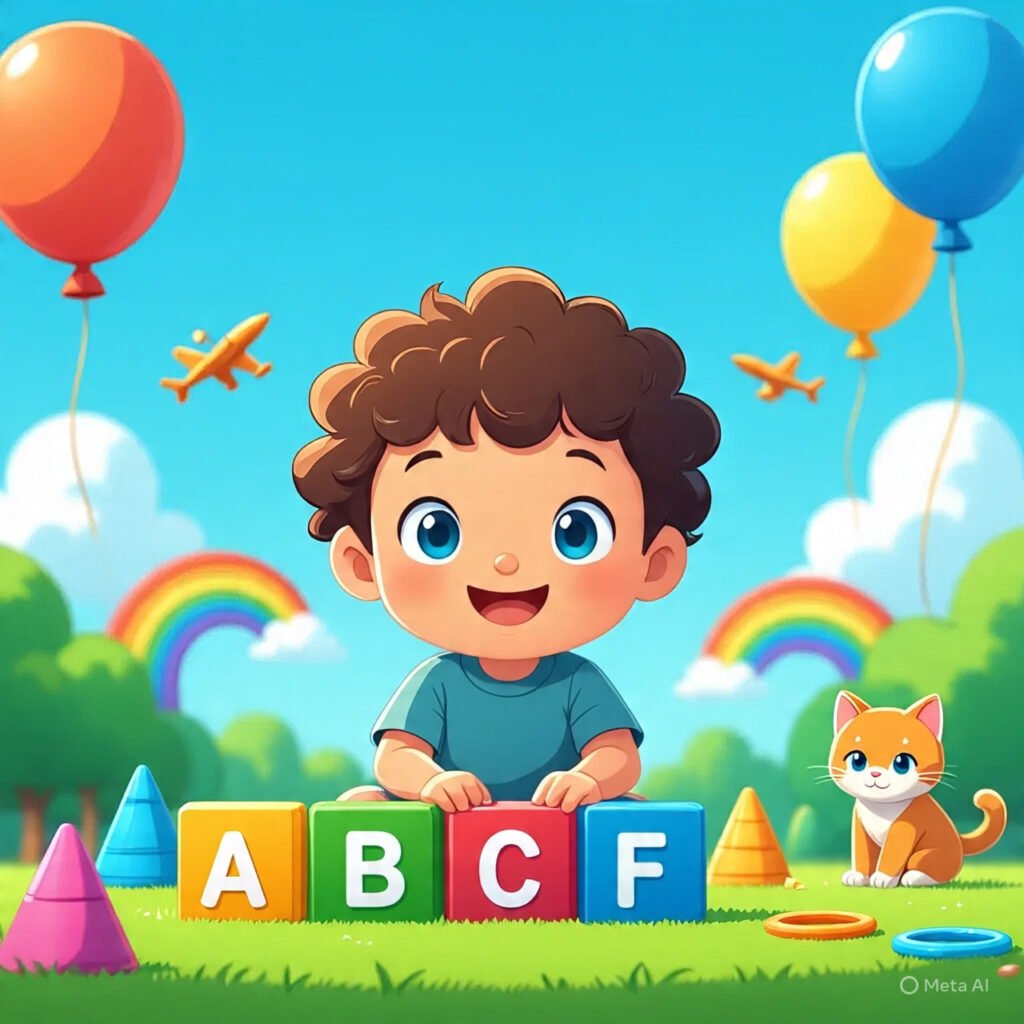
Step-by-Step: How to Play Flip the Picture
- Choose Your Level: Beginner, Intermediate, or Advanced.
- Start the Game: A grid appears with images hidden under each tile.
- Flip Two Tiles at a Time: Try to remember where images are located.
- Make a Match: Correct matches stay open; incorrect ones flip back.
- Beat the Clock or Reach the Goal: Depending on the version, you may race time or complete matches.
Tip for Teachers: Use this in rotation centers or brain break time.
Tip for Parents: Play together and talk about the images. It builds language tool!
This fun kid game online helps build short-term memory in each round.
Memory Games for Kids: Why They’re Essential
Memory isn’t just about remembering birthdays or colors—it’s a fundamental skill that shapes learning across subjects.
From remembering math facts to understanding storylines, strong memory helps kids:
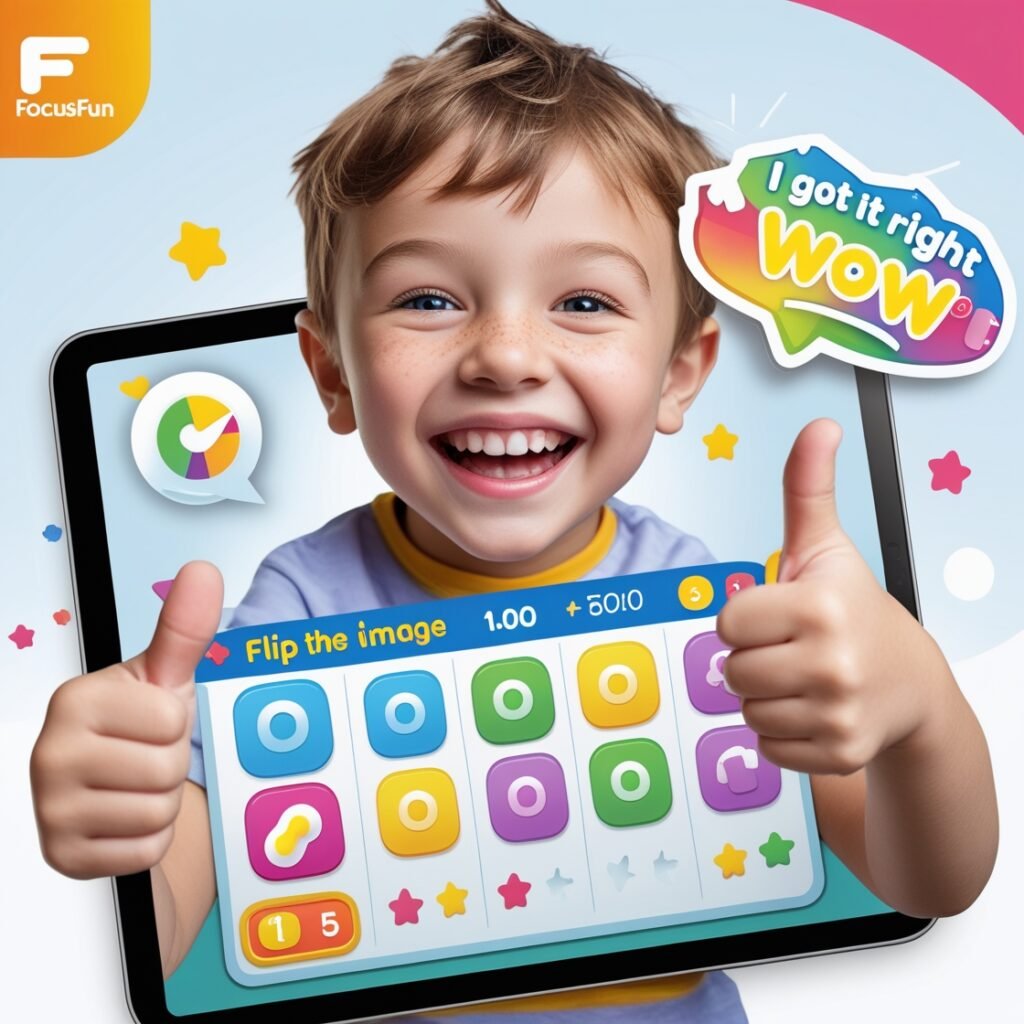
- Process information faster
- Retain classroom learning longer
- Build confidence
Flip games challenge working memory, which is critical for problem-solving and focus.
Core Benefits of Picture-Flip Games
These kid games online offer a powerful blend of fun and focus-building.
- 🧠 Boost Visual Memory – Kids recall images, patterns, and positions.
- 🎯 Sharpen Focus – Attention spans increase with repeated play.
- ⏳ Teach Patience & Turn-Taking – Especially when played in pairs or groups.
- 🔁 Reinforce Cognitive Flexibility – Kids learn from errors and adapt strategies.
Flip the Picture Game Levels: Low to High
Not all kids are at the same developmental stage—and that’s okay! Let’s break it down by level:
These beginner-level kid games online are perfect for starting digital learning.
- Low-Level Games for Beginners (Age 5–6)
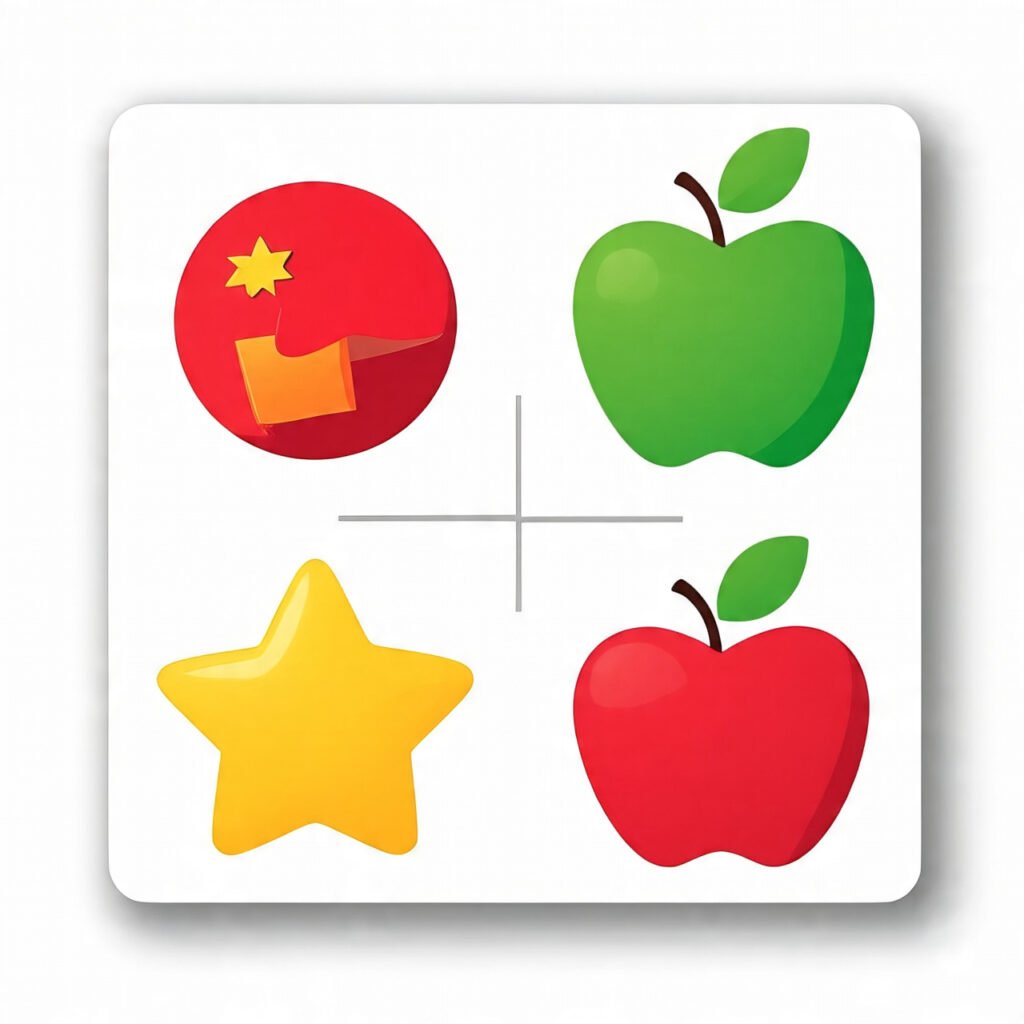
| Game Title | What It Teaches | Play Style |
|---|---|---|
| Match the Pair | Visual cues, image recall | Basic match-2 |
| Baby Animals Flip | Animal names, recognition | Fun & friendly |
| Cartoon Memory | Color and shape awareness | TV character grid |
Perfect for younger kids just getting into screen learning.
This fun kid game online helps build short-term memory in each round.
Mid-Level Games for Progressing Learners
| Game Title | What It Teaches | Challenge Type |
|---|---|---|
| Nature Flip Challenge | Nature elements, focus | Slightly bigger grid |
| Food & Shape Match | Object categories, memory | Timed matching |
| Color Pattern Flip | Sequencing, color recall | Progressive level-up |
Great for kids ready to try more challenging kid games online.
This fun kid game online helps build short-term memory in each round.
High-Level Games for Advanced Players
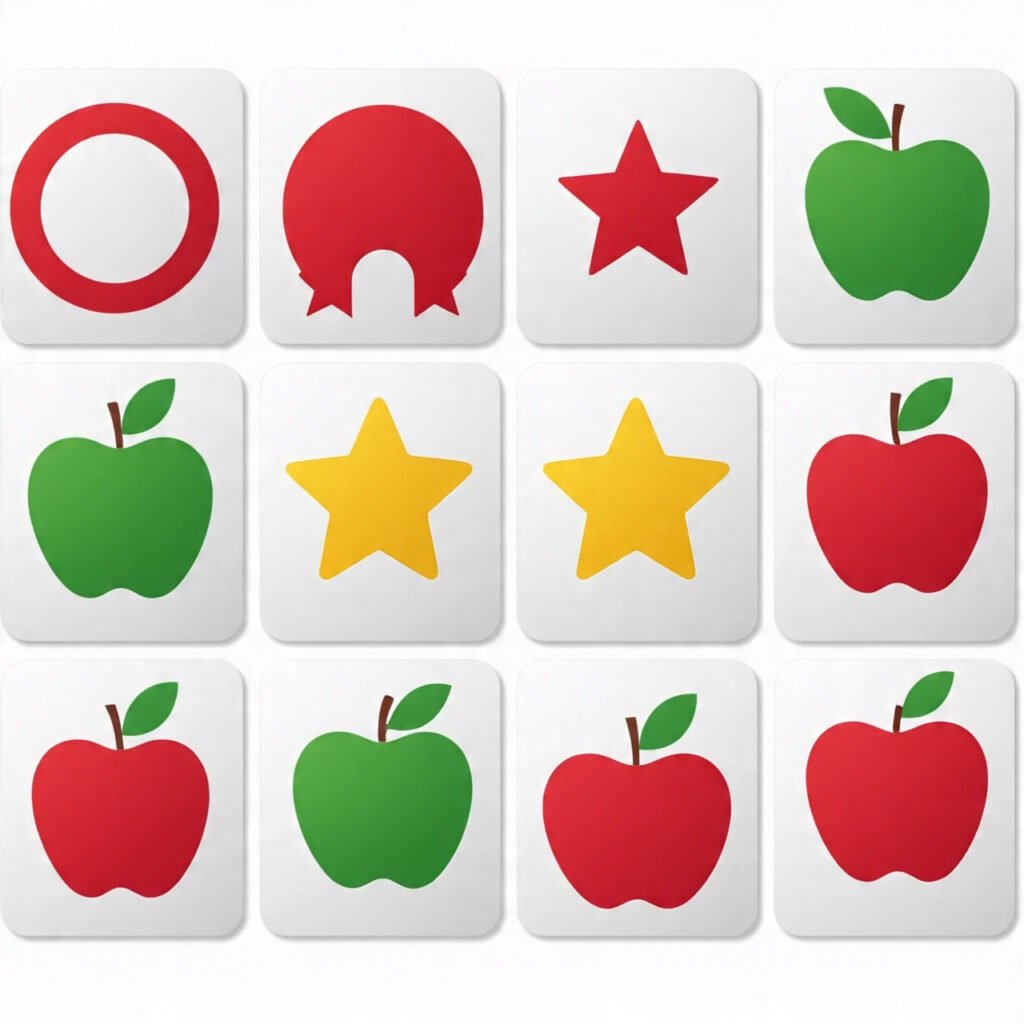
| Game Title | Cognitive Skill | Features |
|---|---|---|
| Brain Flip Mania | Strategy, memory speed | Countdown clock |
| Timed Memory Grid | Pressure handling, focus | Competitive mode |
| Word & Picture Link | Vocabulary building, memory | Word + image play |
These advanced kid games online push logic, vocabulary, and memory speed.
This fun kid game online helps build short-term memory in each round.
Educational Games for Grade 1: Beyond Memory
If your child’s loving Flip games, it’s time to explore more educational games for Grade 1 that complement them beautifully.
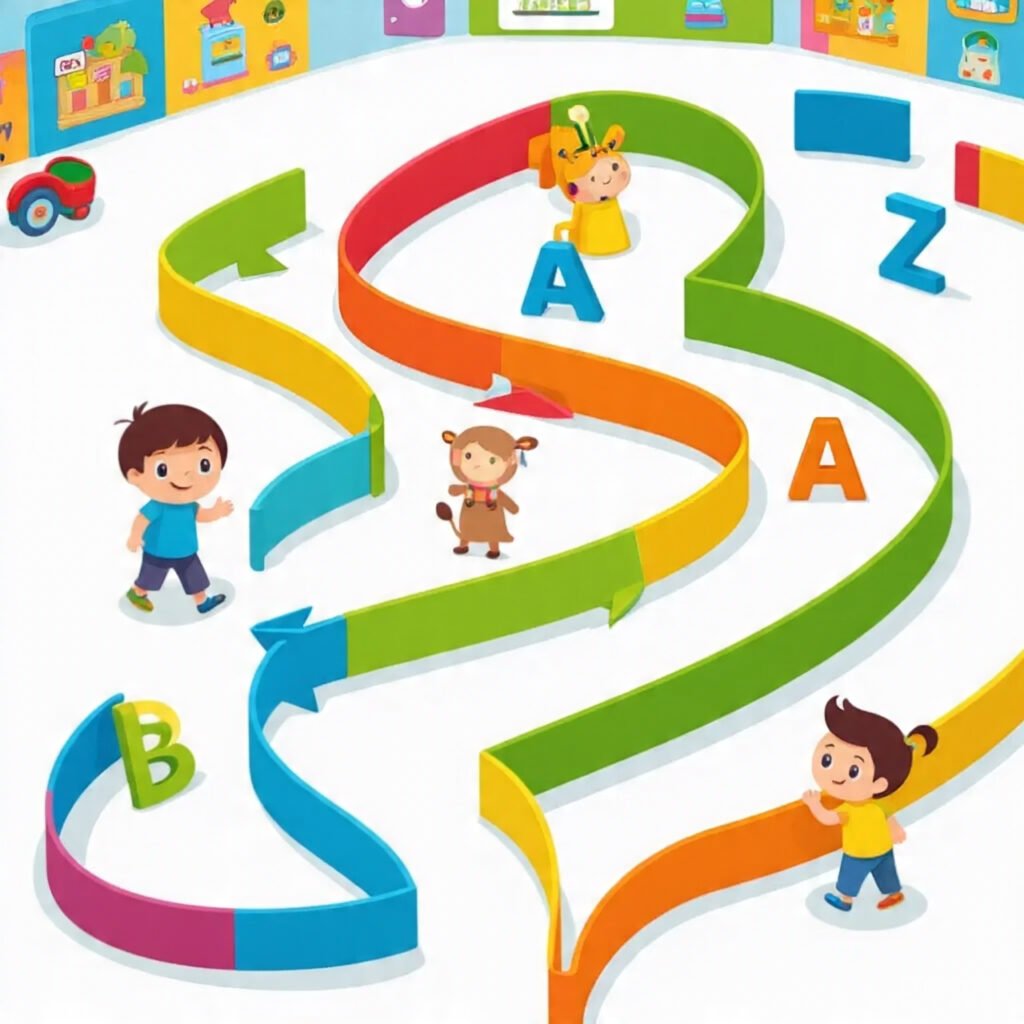
- ABC Maze: Letter recognition + directional movement
- Number Jump: Counting, sequences, early math
- Sentence Builder: Simple grammar + drag-and-drop interaction
Making Online Games Safe and Fun
While online games offer tons of benefits, it’s important to keep things safe and child-friendly:
- Choose ad-free or kid-safe platforms
- Limit screen time to 30–45 mins per session
- Supervise younger kids during play
- Use games as conversation starters
How Flip the Picture Supports Memory & Focus
Studies show that matching games improve short-term memory and enhance executive functioning in children. By focusing attention on the task and retaining image positions, children naturally build concentration and recall abilities—a win-win for both play and learning.
Game Showcase: Top Flip the Picture Games to Try

| Game Name | Platform | Age Group | Skill Level |
|---|---|---|---|
| Flip & Match Safari | Web + Mobile | 5–6 | Low |
| Color Flip Fun | Android/iOS | 6–7 | Mid |
| Memory Master Grid | Web | 7+ | High |
Each of these games brings something unique—whether it’s theme, gameplay, or challenge level.
Why Teachers and Parents Love These Games
💬 “My students stay engaged longer and actually ask to play again after recess!” — 1st Grade Teacher
💬 “This helped my son with attention issues. He’s more focused even during reading time now.” — Parent of a 6-year-old
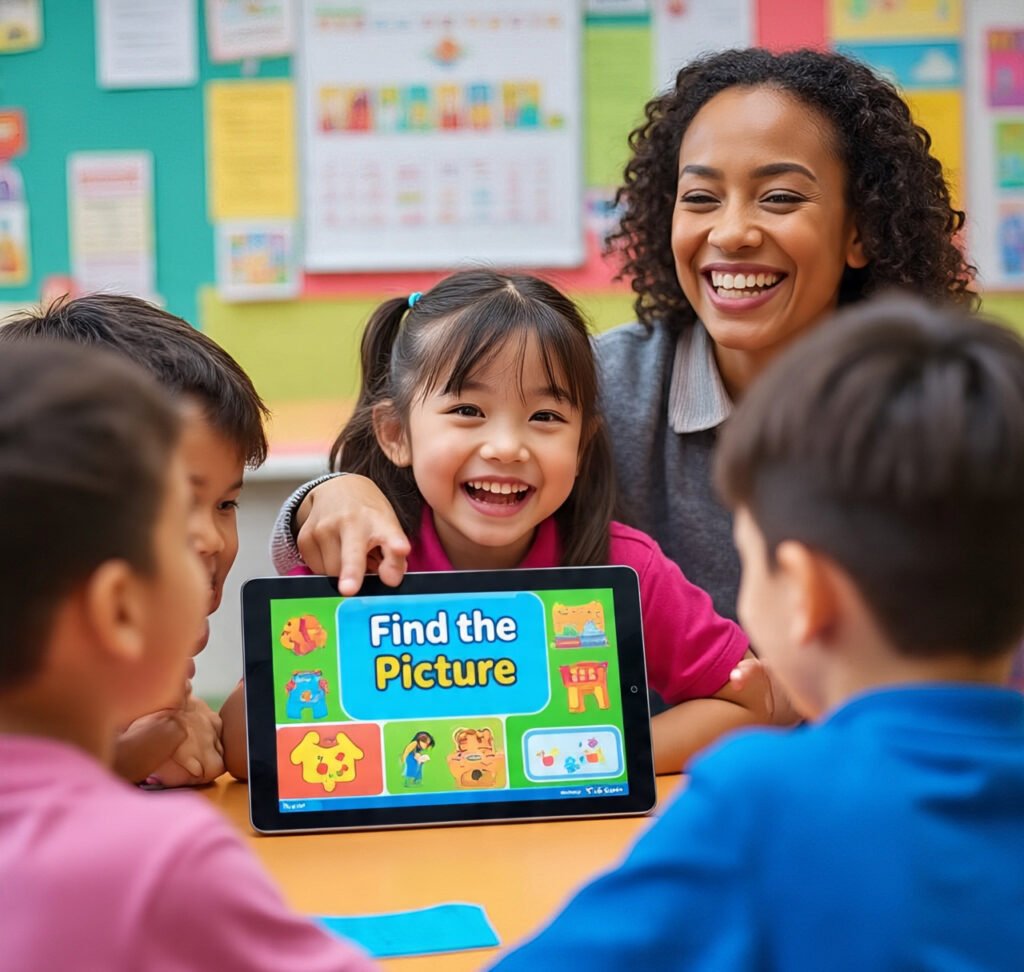
Natural Integration with Focus Fun App
If you’re looking for a one-stop solution, the Focus Fun app offers all levels of flip-the-picture games, along with tracking tools for parents and educators—making screen time smarter, not longer.
The Joy of Learning Through Play
Kid games —especially classics like Flip the Picture—do more than entertain. They train young brains, foster focus, and unlock learning in fun, bite-sized sessions.
In today’s digital world, kid games online have become a powerful tool for early learning. These interactive games offer more than just entertainment—they build memory, problem-solving, and attention skills in a fun, engaging format. Whether it’s matching pairs, solving puzzles, or learning the alphabet, well-designed kid games online can turn screen time into meaningful growth time. Parents and teachers alike appreciate how these games support classroom learning while keeping children excited and focused. From preschool to Grade 1, choosing the right kid games online helps children develop smart habits while enjoying every moment of play.
FAQ Frequently Asked Questions
1. Are online games good for kids?
Yes, in moderation. Many online games can help kids improve memory, problem-solving, coordination, and creativity. The key is to choose age-appropriate, educational games and limit screen time.
2. How much screen time is safe for children?
Experts suggest no more than 1 hour per day of screen time for kids aged 2–5, and balanced screen use for older kids. It’s important to mix screen time with physical activity, offline play, and social interaction.
3. Can online games help with school skills?
Yes! Many online games reinforce skills like spelling, math, logic, reading, and critical thinking. When used wisely, they can complement what kids are learning in school.
4.How do I know if a game is safe for my child?
Check for the following when choosing educational Kid games:
Age-appropriate content with a suitable rating
No ads or in-app purchases that could distract or mislead
Positive reviews from parents and educators
Clear learning goals and measurable outcomes
🔒 Also, use parental controls or trusted apps like FocusFun to create a safe, focused gaming environment for your child.
5. What are signs of unhealthy gaming habits?
Watch out for:
Mood swings when not playing
Ignoring homework or friends
Playing excessively
Difficulty sleeping
These can indicate screen overuse or early signs of digital addiction.
